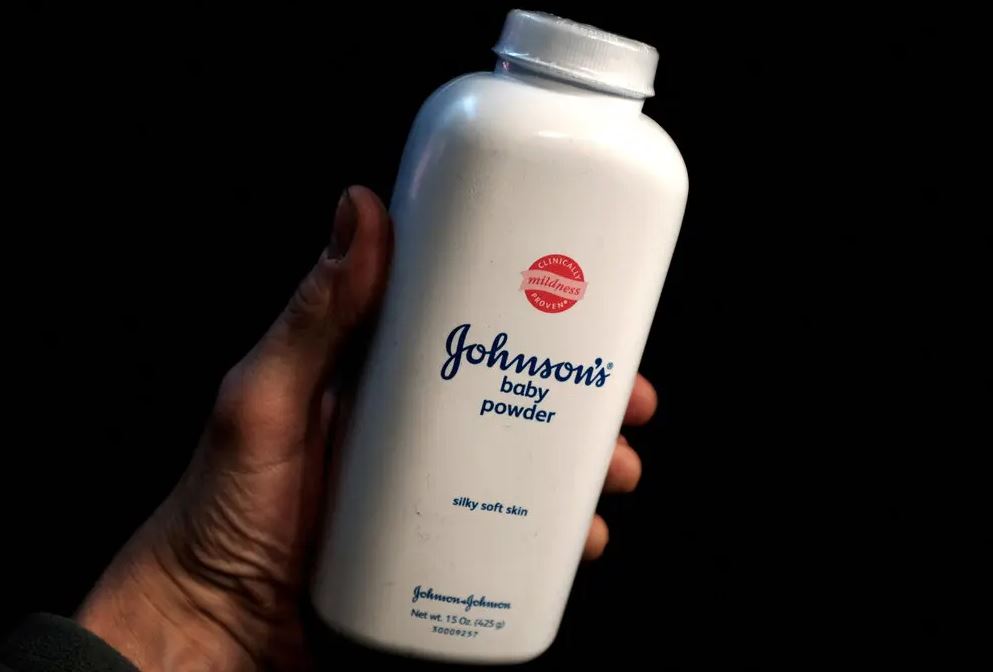In an effort to distance itself from the talcum powder that has been at the core of tens of thousands of customer-filed lawsuits against the popular product, Johnson & Johnson has announced that it would begin using cornstarch in all of the baby powder that it sells across the globe.
The firm recalled certain bottles of its talc-based baby powder in 2019, and then stopped selling the product in North America in 2020. On Thursday, the company announced that it would cease selling the product internationally in 2023. According to Johnson & Johnson, the company already sells baby powder made with cornstarch in a variety of nations throughout the globe.
More than 40,000 cases accuse Johnson & Johnson of marketing talc baby powder despite being aware of its ties to health dangers, such as the possibility of asbestos contamination. Many of the plaintiffs in these claims are women who have been diagnosed with ovarian cancer or mesothelioma.
According to the corporation, the decision to switch to cornstarch was part of an ongoing review of the company’s product lineup and was made because it would assist the company streamline its product offerings and adapt to changing worldwide trends. It also reaffirmed its view on the safety of baby powder, stating, “We stand strongly behind the decades of independent scientific study by medical professionals throughout the globe that proves talc-based baby powder does not pose a health risk to women.” It has been shown that Johnson’s Baby Powder does not contain asbestos or in any way contribute to cancer.
Baby powder made of cornstarch has been offered by Johnson & Johnson for many years. In 1980, the company developed this formulation of the product in response to concerns expressed by consumer advocates that talc contained traces of asbestos, a substance known to cause cancer. When asked how much talc baby powder was still available on the market, the business could not immediately provide a response to the query.
Women’s Voices for the Earth was one of the roughly 200 groups that took part in a campaign headed by Black Women for Wellness to put pressure on Johnson & Johnson to remove all of their products containing talc off store shelves all over the globe.
In April, the shareholders of Johnson & Johnson voted against a proposal to suspend sales of talc baby powder in worldwide countries such as Asia and South America. This request had been spurred by anxiety over the company’s legal and reputational issues, but the shareholders ultimately rejected the plan. After having put aside $3.9 billion the year before for talc-related litigation expenditures, the business had to deal with talc-related expenses of $1.6 billion last year. According to reputation monitoring companies, Johnson & Johnson’s previously impeccable repute has been tainted in the eyes of customers as a result of the allegations surrounding talc.
Talc-based items make for a minuscule fraction of Johnson & Johnson’s sales of consumer products, which also include Band-Aid bandages and Listerine mouthwash. On the other hand, they are responsible for a large part of the company’s legal difficulties. In one of the most expensive personal injury judgements in the history of the world, Johnson & Johnson was sentenced to pay $4.69 billion to 22 plaintiffs in a lawsuit involving talc.
The corporation has attempted to reduce the risk of being subjected to legal action by using a complex corporate manoeuvre known as the Texas Two-Step. A bankruptcy court in New Jersey gave the go-ahead for the corporation to proceed with the strategy in February. The manoeuvre takes its name from a dancing style that is influenced by the foxtrot, and its intricate structure comes from a peculiarity in the business law in Texas.
Since it was first conceived in 1989, the process of reorganisation, which involves isolating certain assets and keeping them hidden from creditors, has been put into practise only a select few times. The majority of the time, it has been utilised by businesses that are being sued for asbestos exposure. If it is effective, it might protect Johnson & Johnson from legal claims totaling billions of dollars while also offering a way out for other businesses that are drowning in personal injury lawsuits.
The gamble has halted the talc cases against Johnson & Johnson, and it is possible that the claimants, some of whom are in critical condition, may be left with a reduced pool of assets from which to receive settlements. The attorneys for the plaintiffs have filed an appeal in an effort to prevent the move from going forward, and the next hearing is slated to take place in September.

